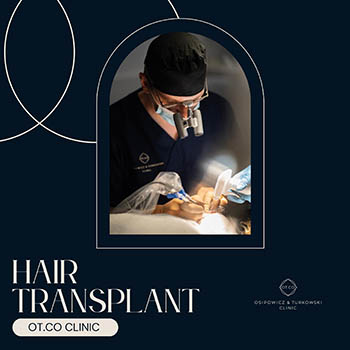TL;DR:
- Endoscopic sinus surgery is a less invasive way to treat sinus problems.
- It is recommended for people with chronic sinusitis, polyps, lesions or defects from birth.
- The FESS procedure takes 1.5-2.5 hours under anesthesia, removes blockages and repairs damage.
- Before the operation, a detailed diagnosis, abstinence from alcohol and cigarettes and necessary tests are required.
- FESS shortens treatment time, allows a quick recovery and improves the patient's quality of life.
- Recuperation requires rinsing the sinuses with saline and avoiding sudden movements and heat.
- Possible but rare complications include bleeding, infections, and olfactory problems.
- There are some contraindications to performing FESS, such as high blood pressure or circulation problems.
Are you tired of constant headaches? A clogged nose makes life impossible? Endoscopic sinus surgery may be just what you're looking for. It's a modern and safe method of treating sinus problems. In this article you will learn all about the FESS procedure. I will tell you how to prepare for it and what benefits it brings. We will also cover the topic of recovery and possible risks. Let's start with what endoscopic sinus surgery is and why you should consider it.
What are the characteristics of endoscopic sinus surgery?
Endoscopic sinus surgery is a way to combat nasal problems. This method uses a thin tubular instrument with a camera, or endoscope. Doctors can see inside the nose and sinuses without making large cuts in the face. This helps operate exactly where needed.
What are the indications for endoscopic sinus surgery?
People with sinusitis who cannot use drug treatment, or are allergic to medications, may need such surgery. Also those with recurring sinus problems, or a blocked nose. There are also more serious problems, such as sinus lesions or congenital nasal defects.
What are the stages of the FESS procedure?
The FESS procedure takes between 1.5 and 2.5 hours and is performed under anesthesia. First, the doctor prepares the nose and inserts the endoscope. Then they remove diseased tissue, polyps, and other obstructions. They may also repair the nasal septum or shrink the nasal turbinates. After the procedure, special dressings are placed in the nose, which dissolve on their own after several days. You can read more about the procedure here.
How to prepare for endoscopic sinus surgery?
Before the FESS procedure, it is important to prepare well. This is the key to success and a quick recovery. You'll need several tests so your healthcare professional can assess the condition of your sinuses and your overall health. Also, don't forget to talk to your anesthesiologist before surgery. Be prepared that you won't be able to eat or drink for a few hours before the surgery.
What is the diagnostic process before surgery?
Before you undergo surgery, you will go through a thorough diagnostic process. This could be an endoscopic examination or a CT scan. The healthcare professional will check what your sinuses look like and whether there is anything there that could interfere with the surgery. This is important to make sure everything is clear and safe. Remember, this is your first step to feeling better. You can read more about the process here.
What should be done before endoscopic sinus surgery?
Before FESS surgery, you need to remember a few important things. First, your healthcare professional will tell you which medications you can take and which ones to avoid. Second, set yourself up to give up alcohol and cigarettes for a few weeks before the surgery, as this will help you recover faster from the operation. Also, arrange for help at home for the time after surgery. It's also a good idea to have someone drive you home after the procedure.
What are the benefits of endoscopic sinus surgery?
Did you know that endoscopic sinus surgery can change your life for the better? This method has many advantages, especially if you have a long-standing sinus problem. It is less invasive than the old ways. After the procedure, you will quickly return home and to your normal life.
What are the advantages of the FESS method over traditional surgery?
The FESS method, or endoscopic sinus surgery, is effective and safe. You don't have to worry about large cuts on your face. This solution allows you to carefully remove only the tissues that are diseased. Treatment time is shorter. You can also return to your activities faster.
How does FESS affect patients' quality of life?
With FESS, you feel relieved, breathe better and are sick less often. Your senses, like smell, can improve their performance. You no longer have to worry about constant headaches or sleep problems. After such an operation, your life can become much more pleasant.
What is the recovery like after endoscopic sinus surgery?
After endoscopic sinus surgery, you will face a period of what we call convalescence. This is the time when your body is returning to strength. The most important thing is to follow the doctor's instructions so that everything goes well.
What are the post-surgical recommendations?
Your doctor will tell you how to take care of your nose and sinuses after surgery. You will need to gently rinse your sinuses with saline. This will help you keep them clean and prevent infections. It's also important not to make sudden head movements and avoid heat – don't use saunas or hot baths.
When can a patient return to normal activity after surgery?
It usually takes a few days to a week to return to normal activities. But it all depends on how you feel. Some people feel fine the very next day, while others need more time. Your healthcare professional will advise you on when you can return to work and how soon you can start exercising. Remember to listen to your body and don't overexert yourself.
What are the risks and potential complications after FESS surgery?
FESS surgery is considered safe, but like any surgical intervention, it carries some risks. The most important thing to know is that complications after FESS are rare.
What are the most common complications after endoscopic sinus surgery?
The most common problems that can occur after FESS are nosebleeds or infections. Occasionally, there may be problems with the sense of smell or a feeling of a blocked nose. Remember that healthcare professionals take care to keep the risks as low as possible.
Are there contraindications to having FESS performed?
Yes, there are some contraindications. Not everyone can have a FESS procedure performed. People with high blood pressure, circulation problems, or uncompensated chronic obstructive pulmonary disease will not be good candidates. It is always necessary to undergo a thorough examination before surgery. You can find out more about this here.
Conclusion
Endoscopic sinus surgery is an effective way to solve nasal problems. In the article I described how to prepare, the benefits and what to do after the procedure. Remember, the procedure is not only a relief from breathing, but also a better quality of life. However, there is always a risk of complications, so choose wisely and consciously.






